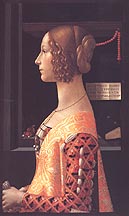Petruccio:
I come to wive it wealthily in Padua;
If wealthily, then happily in Padua.
Money? Or something else as well: From the root weal. Linked to the word commonweal - an implication of much wider usage than just goods and money (and that is still used in its wider sense, eg the Catholic Publication and the Commonweal Institute).
Wealth is a word that is used much in some of the Homilies preached every Sunday from the pulpit in Elizabethan England - on the one on good Order and obedience, for example, it is a word used 10 times - never once meaning money. In the homily against drunkeness it appears four times, including this -
so they haue worldly wealth and riches aboundant to satisfie their vnmeasurable lustes, they care not what they doe. They are not ashamed to shew their drunken faces, and to play the madde man openly.
where the 'worldly' is necessary to distinguish other types of wealth.
 Does Petruccio, when he says he comes to 'wive it wealthily' mean this worldly wealth - or is he saying something else?
Does Petruccio, when he says he comes to 'wive it wealthily' mean this worldly wealth - or is he saying something else?There was a saying in Elizabethan England about it not being possible to gain both a wife and wealth in the same year - is Petruccio out to prove it wrong?
There are other attempts at wealthy marriages and other talks of money in the play - don't forget, Kate's father is as anxious to find a rich suitor for Kate as Petruccio is for himself (which puts pay to the idea Petruccio doesn't have money); and he selects a partner for his other daughter on the same criteria; the widow at the end of the play is 'rich'.
Aren't we being faced with a dilemma - isn't Shakespeare asking the question - wherein lies true wealth?
Katherina and Petruccio make a 'rich' match - but they are also wealthily married - I'm not too sure about the other two couples.
Technorati Tags: Shakespeare, wealth, Taming of the Shrew





No comments:
Post a Comment